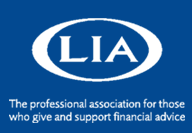Personal Pensions
A Guide to Understanding Personal Pension in Ireland – Is it right for You?
Personal Pension, simply put, is a form of pension which is contributed voluntarily by self-employed people or those having an employment but not covered by any form of employment or occupational pension. It is necessary that any individual who is taking a personal pension plan needs to belong to the former or latter category.
What’s alarming to note is that 90% of the adult working population in Ireland do not keep up with their pension savings, which could be disastrous. In a country where the average life expectancy of a typical adult is 81.5 years, and considering most retire by the age of 60 to 65, these people are missing out on a secure annual income when they can no longer work for a living.
The legislation for personal pension has seen changes over the years, based on the background of existing economic scenario and the financial market conditions. Unlike the general rule, pension laws are not subject to Pension Authority regulations. Instead, it is governed by tax laws and financial regulations. These financial legislations are based on Insurance sector enactments.
Personal pensions are also formally known as Retirement Annuity Contracts or Additional Voluntary Contributions.
Rules governing Personal Pension Plans
Personal Pension in Ireland works somewhat like an Insurance policy. The fund holder or the contributor will pay a minimum annual amount to the pension fund for a fixed tenure. Most of these pension funds are owned by Insurance companies. These Insurance companies would create an investment fund from the premium so received. Once the tenure gets completed, the fund holder can use the accumulated funds to buy an annuity.
Some recent changes have made it possible to move from one fund to another, which was not allowed earlier. At the same time, the necessity of buying an annuity on maturity of tenure has been removed – This has seen as a great relief for Personal Pension holders.
Knowing certain Terminologies
Approved Retirement Fund (ARF) – It is the approved account to which the Personal Pension funds can be transferred for the purpose of re-investment. However, every withdrawal will be subject to income tax. Any of the following condition needs to be fulfilled before taking the ARF as per the modified rules since 2011 –
- Have an assured personal income throughout life of at least €12,700 per year which can include state pension
- Hold an investment of €63,500 in an AMRF (which is explained below)
- The holder of an annuity which is not less than the value of €63,500
- Has reached the age of 75 years
Approved Minimum Retirement Fund (AMRF) – It is the same as above with the following conditions –
- The person must have reached the age of 75 years
- Has started receiving an assured personal income of €12,700 per year
- Cannot make a withdrawal of more than 4% in a year
Benefits of setting up a Personal Pension Plan
- Assured retirement income –
Improved healthcare services have made life longevity the common norm. However, the working age capacity for every adult is limited by body and health constraints. The more one contributes to savings in their career, the better will be the regular income that will accrue once the no-work age threshold approaches. This is an overriding need and primary benefit of investing in a personal pension fund. It is a MUST if the person is self-employed or not covered by occupational pension of any form.
- Income Tax Relief –
All contributions to Personal Pensions are subject to income tax relief as specified by the financial legislation and subject to age and amount bracket. The upper limit permissible for calculating the amount of revenue liable to tax relief is capped at €115,000. Any amount above this will be treated as income and subject to income tax. There is a defined age bracket corresponding to the net relevant earnings for the same to have tax rebate and is as shared below –
| Age | Tax qualifying amount | Amount considered max contribution |
| Within 30 years | 15% of net relevant earnings | €17,250 |
| 30 to 39 years | 20% | €23,000 |
| 40 to 49 years | 25% | €28,750 |
| 50 to 54 years | 30% | €34,500 |
| 55 to 59 years | 35% | €40,250 |
| 60 and above | 40% | €46,000 |
It has to be noted that the maximum upper limit is applicable for persons of all occupations irrespective of age. The best example will be sportsmen who have limited playing age.
- Tax-free performance –
From the stage of pension contribution to the final stage of retirement, there is no tax levied on any form of income generated through investment of these funds. For example, stocks or mutual funds dividends have no tax liability which makes perfect sense to invest in them.
- Tax-free retirement lump sum
upon reaching a retirement age, the pension contributor has a tax-free lump sum amount of €200,000.
Any lump sum payments beyond €200,000 and those up to €500,000 will have a 20% tax bracket rate.
- Transfer from one fund to another –
As per amendment done in the year 1999, the pension contributor can easily move from one fund to another as he or she deems fit so that the contributor doesn’t have to be tied to just one option.
Other charges and changes applicable:
- The financial laws were changed in the year 2011 for investing in ARF and AMRF. These changes were negated in the financial act of 2013 and the pre-2011 act was revalidated. From the year 2016 the changes of 2011 were made applicable again.
- The levy of 0.6% on market value of assets in personal and occupational pension funds has been abolished.
- The Personal pension is subject to PRSI and USC.
- If the fund is unused at the time of death, it is taken as part of estate and CAT is applicable on the inheritors.
- If the fund benefit has been availed and part of it is invested in ARF at the time of death, then the balance is taken into estate and tax at marginal rate is deducted.
Seek out a reliable Financial Adviser to get all the Facts right
The first and foremost thing that any Financial Advisor worth his/her salt would tell you is – the sooner you start with a Personal Pension plan, the better. In order to help secure your future, you would need an appropriate estimate of your monthly pension savings so that you can have a reasonably good standard of living by the time you retire.
Pension planning is crucial, and here at Murray Financial Services, we are all about providing trusted investment advice when it comes to your retirement planning, life cover, investments, and more. Our advisors take time to consider the varied interests of our clients, because we know there isn’t a “one-size fits all” solution.
We discuss each aspect of your retirement goals, your financial well-being, and whatever apprehensions you may have to arrive at a customized Personal Pension Plan that is drawn up based on our expertise in the financial market.
If you believe Personal Pension plan is something that you would like to know more of and invest in a retirement fund, then visit https://mfs.ie to get more information. Alternatively, you can also call us on 091 740 700 to set up an appointment.




Leave a Reply
Want to join the discussion?Feel free to contribute!